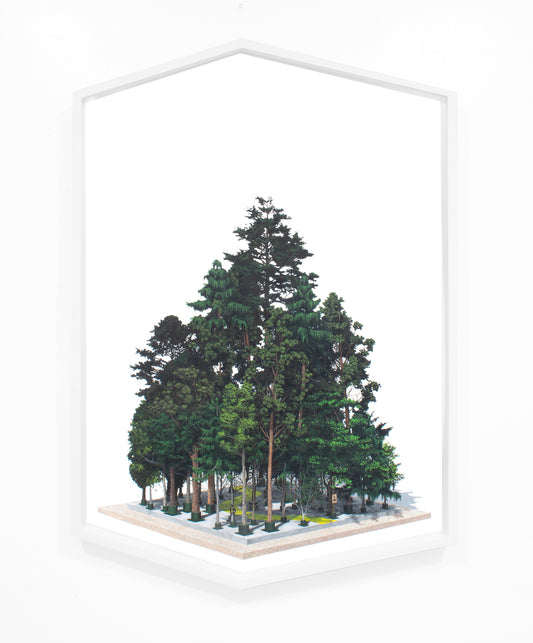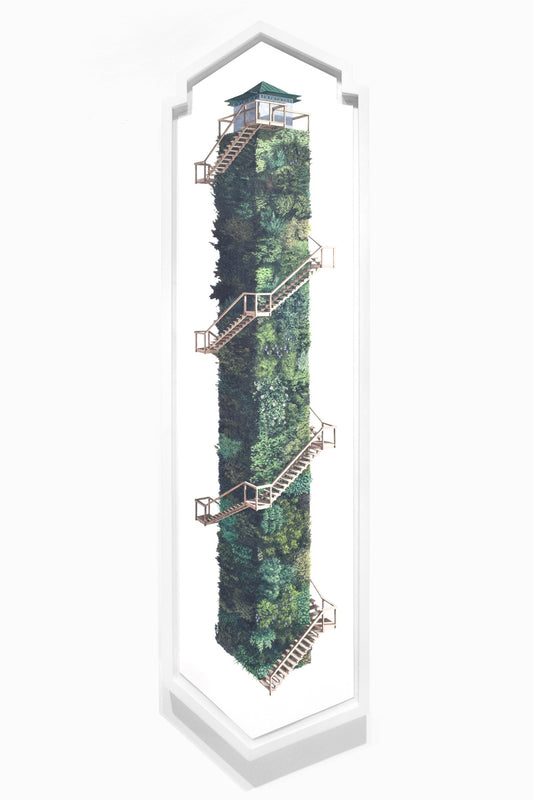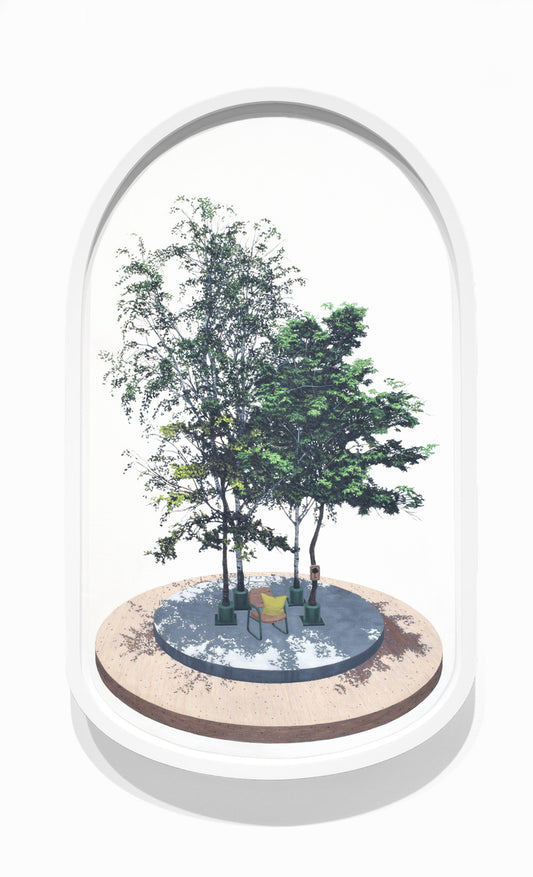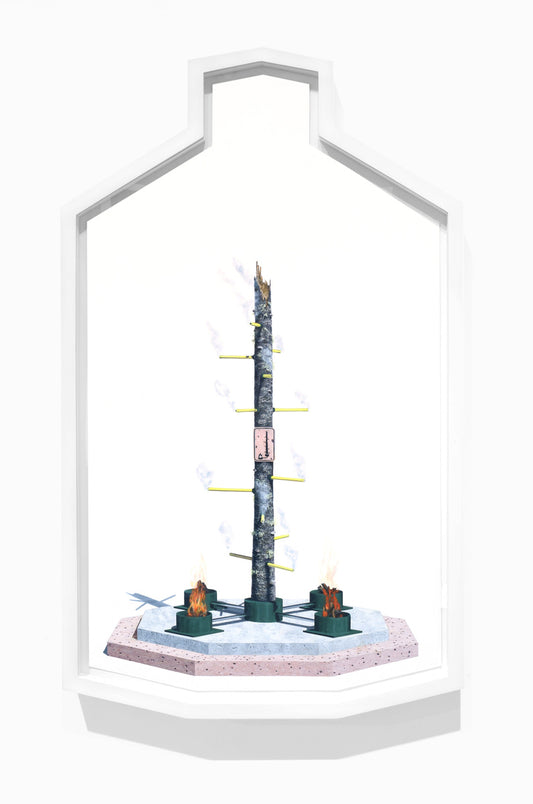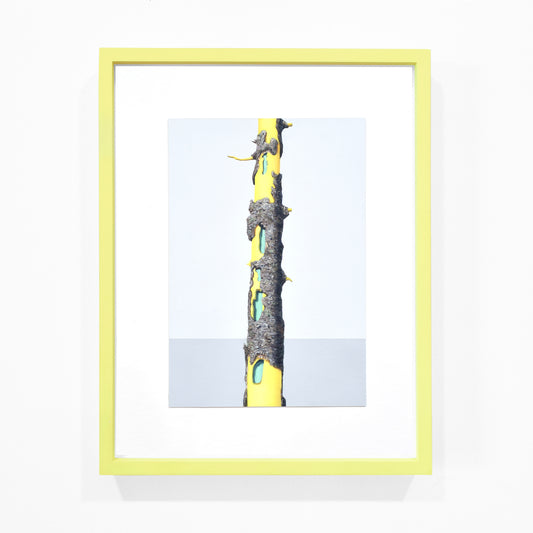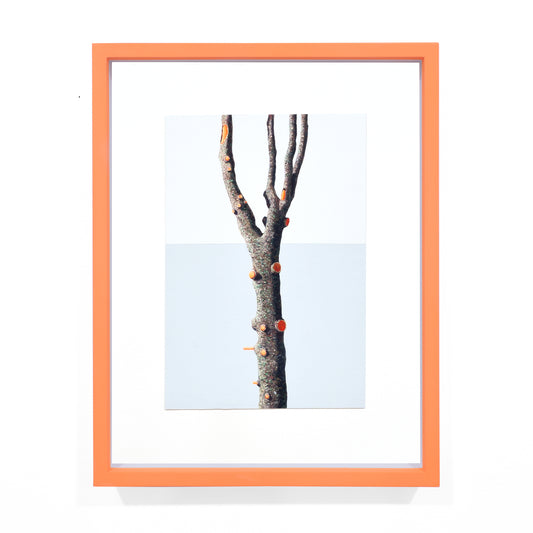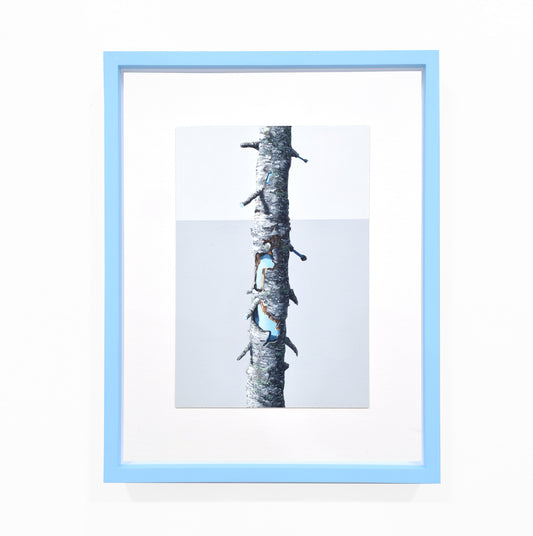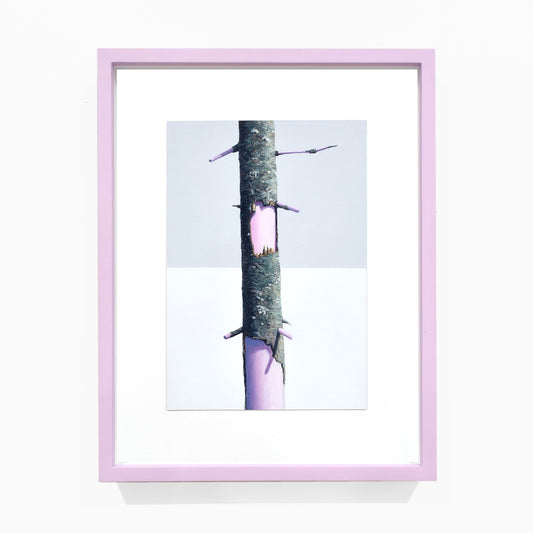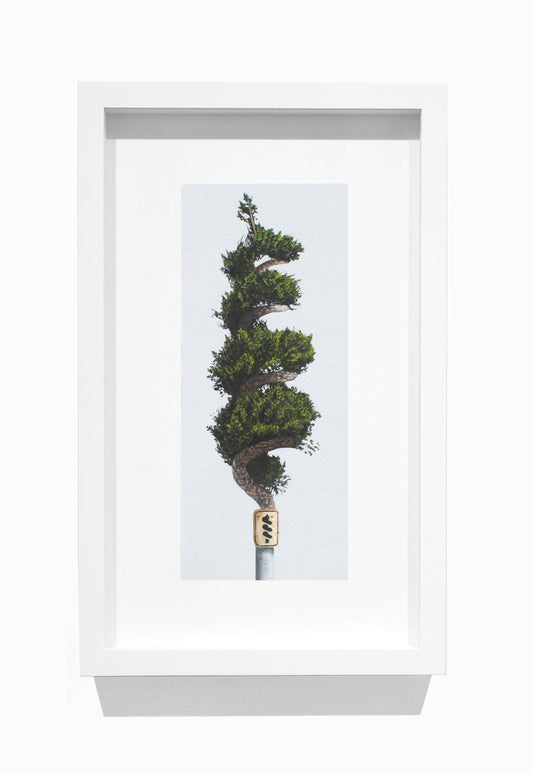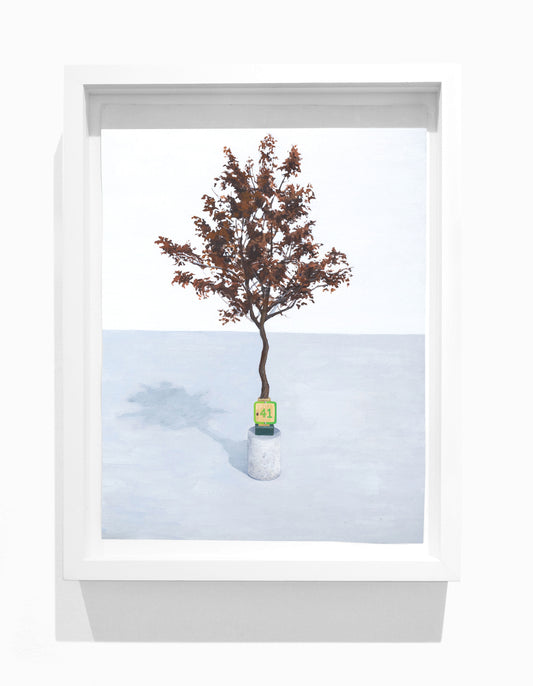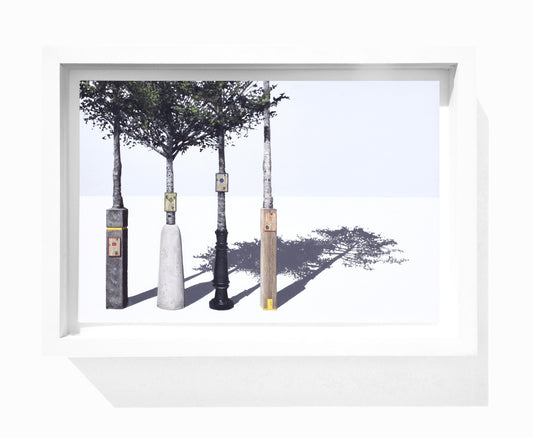Katzman Art Projects is thrilled to present Jazz Keillor's first solo exhibition at the gallery. Keillor's meticulously rendered, formally composed paintings on paper are thought provoking, as we question our usage of nature for recreational experiences. At the same time they are wonderfully playful and tongue in cheek.
"In 2017, during one of many weekend backpacking trips to the Rocky Mountains, a small group of friends and I paid our fees at Banff National Park and set off by foot into the woody mountain terrain for a swift fifteen-kilometre hike to our designated campsite. Tourists wearing flip flops, or low heels, some pushing strollers or lugging heavy Coleman coolers on wheels, competed for space and snapped selfies along the dirt path. With each passing kilometre into the woods, we felt our sense of isolation increase. By the tenth kilometre we felt very alone. This, we decided, was the real wilderness. As we neared our destination, we made a spur of the moment decision to ditch the campsite we’d been assigned, and to pitch our tent on a smooth, perfectly flat rock overlooking a sparkling blue lake. It couldn’t possibly matter, after all, whether we set up camp beside a small, numbered pole in the ground a few kilometers up the path, or here, on this perfectly inviting rock. A few hours into our evening we saw a helicopter overhead at some distance, which amused us, because it broke our mutual feelings of suspension from civilization. The helicopter drew nearer and nearer. Suddenly, it swooped downwards and landed in the water, almost directly in front of us. To our surprise (and slight terror), two large park rangers jumped out of the vehicle and started wading through the water towards us. They reprimanded our noncompliance and issued a ticket for “illegal camping”. They demanded that we pack up our belongings and make our way to the campsite for which we were properly registered. This was a startling encounter. It reminded us that, as much as we felt like we were in the wild, we were in fact paying customers within the borders of a federally owned and monitored National Park.
I am interested in this containment - the invisible walls that enclose and delineate our collective ideas of wilderness. The word paradise can be traced to the ancient Persian word Pairidaeza, which refers to a walled enclosure, pleasure park or garden. When Banff National Park was founded in 1887, the area was officially designated as a “pleasure ground”, the same term used to describe the part of an English garden dedicated solely to the enjoyment of its owner. Jon Muir once referred to the North American continent in its entirety as a wild garden. My current studio practice asks what it means that this “garden” has been stolen, sliced and sold as a quintessential national pastime over the course of the past 150 years.
The history of commercial outdoor recreation in North America can be traced to colonial notions of land as something that can be bought and sold. In the mid-nineteenth century, industrialization swept across the continent and threatened widespread settler agrarian ideals that placed moral value on physical labor and self-sufficiency. These ideals were lamented by a growing upper and middle class who clung to romantic notions of simple living, while benefiting from the conveniences of the city. Temporary immersion in nature was the answer to experiencing the best of both worlds and thus began a distinctly systematized settler Canadian approach to marketing the wilderness experience. Ironically, the contemporary outdoor enthusiast has come to expect a full range of services and infrastructure to support their desire to engage with the outdoors while maintaining the comforts of home.
As a lifelong city dweller, I understand all too well the lure of wild space. The respite from the rigors of daily life, the meditative power of working with one’s hands to fulfill the needs we normally take for granted, and the sense of camaraderie fostered around the light of a blazing fire. Yet present day interactions with the land are complex, conflicting and confusing. Through quiet humour that borders on the absurd, my works invite viewers to reflect on the ways in which outdoor experiences bring a sense of joy, and the contradictory frameworks that pave the way for this enjoyment."
-- Jazz Keillor
 Jazz Keillor // Paradise
Jazz Keillor // Paradise

